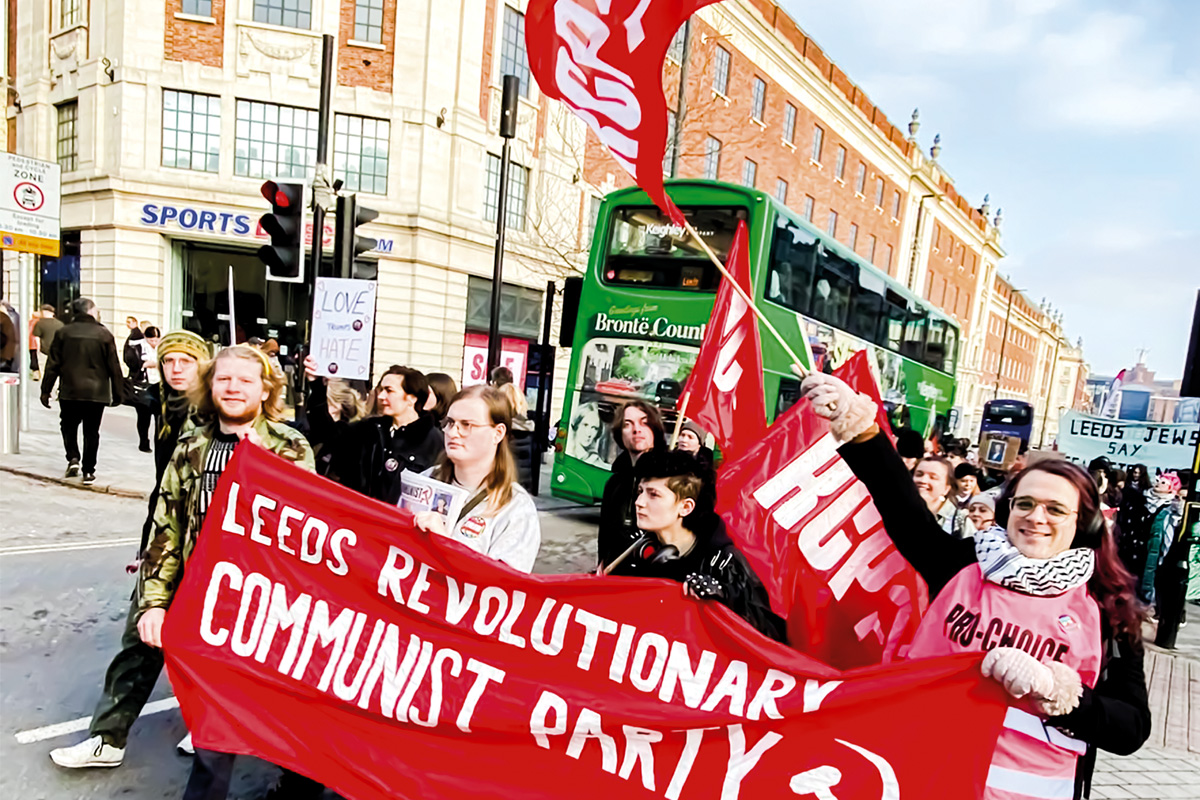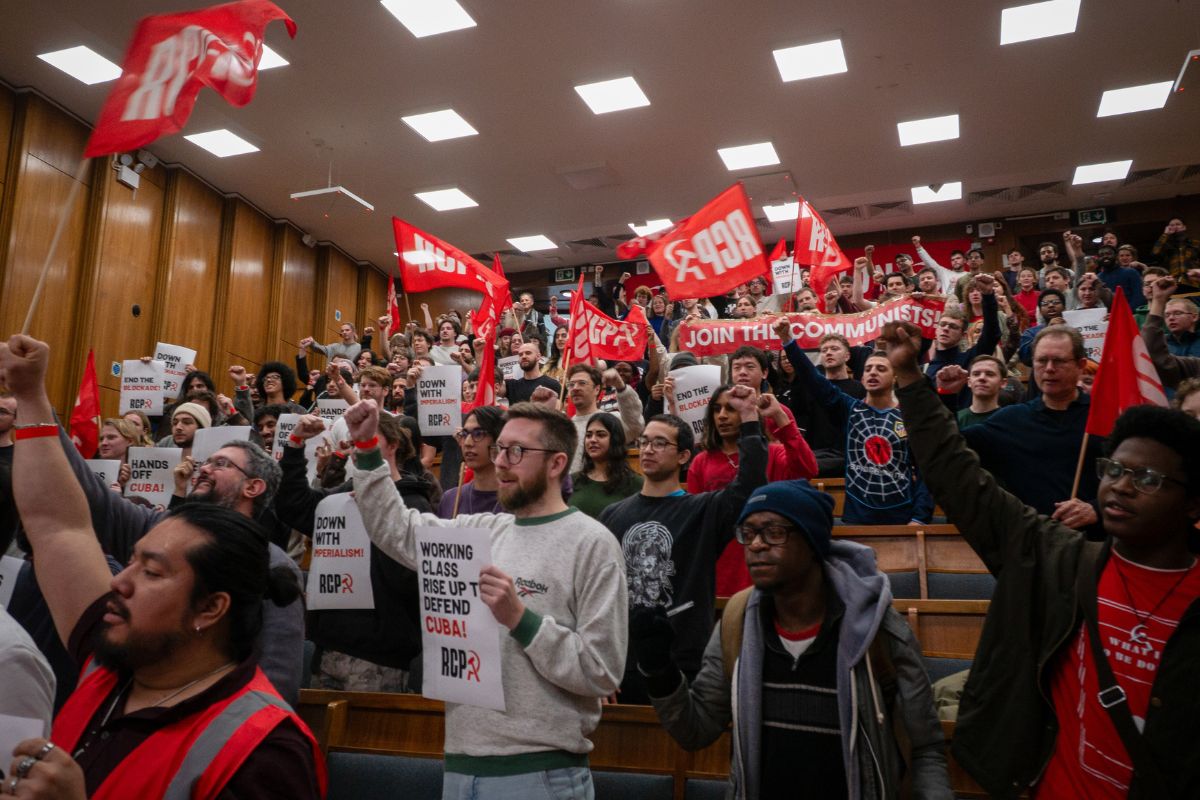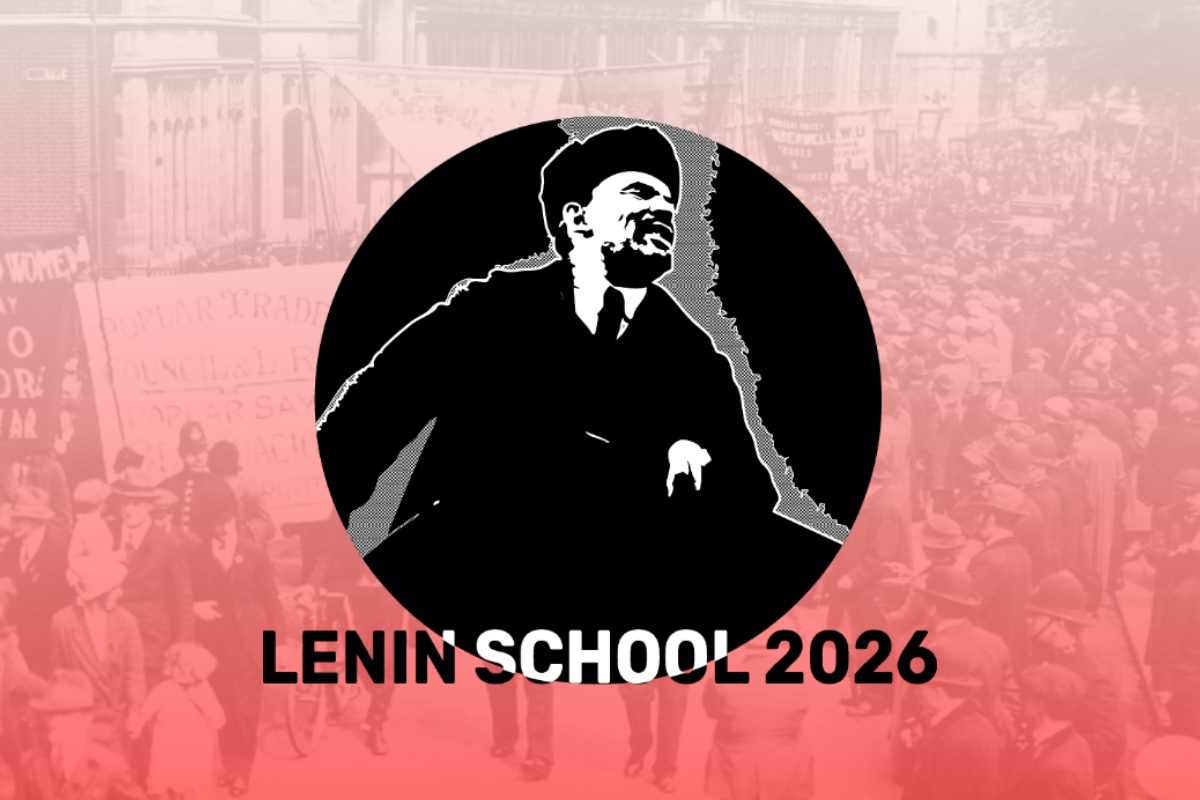Overcoming early challenges
Since founding the branch in November 2023, the branch has undergone significant changes. Only one of the seven current members was part of the original branch.
Early on, we faced high turnover, and despite the best efforts of two leading comrades, elaborate plans alone could not resolve the instability.
In May 2024, we joined the Leeds University encampment, working alongside other branches in the district. During this period, we recruited a highly motivated new member, marking the beginning of our transformation.
Prioritising their political development became our focus, by engaging with them in one-on-on political discussions.
Voir cette publication sur Instagram
Around this time, we also merged with the Leeds Arts Branch to prepare for the upcoming ‘autumn offensive’ during the freshers period.
This transition forced us to reassess our approach: while one-on-one discussions were valuable, the core of our activity had to be dynamic, engaging, and educational branch meetings.
Meeting the moment
During the summer, far-right groups became more active, with riots taking place in many parts of the country, including Leeds. The broader left’s response was weak, and though major events were unfolding, our branch was not yet positioned to intervene effectively.
To address this, we held a serious branch discussion on fascism, ensuring all members were politically united. Leading comrades also held one-on-one meetings with members in advance, reinforcing the importance of a firm and serious approach.
This process politically hardened the branch and prepared us for future interventions.
A breakthrough
By the time Leeds Beckett Freshers Week arrived, our branch had only five members but a renewed sense of purpose.
Through consistent work, we met 37 people interested in joining. In fact our first post-freshers branch meeting saw enough contacts to outnumber existing members.
Two new recruits quickly took leadership on various tasks. We tailored our meetings to engage our newest members, demonstrating that if they wanted a serious revolutionary organisation, this was the one.
This helped us distinguish between those we could immediately recruit and those who needed longer-term political development.
Political education
A key factor in our growth has been the transformation of our branch discussions. We now have a high standard of debate, with every comrade expected to prepare thoroughly.
This approach encourages comrades to ask open-ended questions, attempt to answer them, and refine their understanding through discussion.
New members have rapidly developed, producing high-quality contributions and lead-offs. Their enthusiasm has also pushed the branch leadership to continually raise their own political levels.
As a result, our goal of establishing a consistent presence at the university feels entirely achievable.
Voir cette publication sur Instagram
The Lenin Programme
Recognising our new members’ interest in Lenin and Bolshevism, we launched the Lenin Programme from October to December.
This covered topics such as imperialism, the Bolshevik Party, and left-wing communism, while also incorporating Marxist philosophy, economics, and history in response to comrades’ questions.
The culmination was to read In Defence of Lenin by Rob Sewell. Just before the Revolution Festival, we set a goal for every comrade to purchase the book before the Christmas holidays. We politically justified its importance, linking it to the discussions we had already been having.
The result? Every branch member – including someone who had only just joined – purchased the book. Over the holidays, comrades began reading the first volume, making us the most politically prepared for the new year that we had ever been.
Comradely bonds
A crucial factor in our branch’s development has been the formation of comradely social bonds. Every comrade feels comfortable engaging in political discussions with any other member.
This has only been possible because we all understand why we are in the branch: to build the revolutionary party.
Voir cette publication sur Instagram
To maintain this focus, we ensure full political transparency – there are no ‘secrets’ within the branch.
Disagreements and shortcomings are discussed openly, with leadership setting the tone for serious rather than academic discussion. Social interactions remain rooted in our revolutionary purpose.
Even casual conversations often have a strong political dimension. For example, two comrades who are passionate about sports frequently discuss the Soviet Union’s approach to athletics, capitalism’s impact on sports, and the benefits of a centrally-planned economy.
Since September, we have held post-branch discussions in the same location as our meetings, drinking tea instead of going to the pub. This has fostered a professional atmosphere while still allowing for a mix of political discussion and social bonding.
To reinforce our approach to revolutionary finance, comrades contribute for their tea – often donating what they would have spent on a pint. This has significantly increased our financial contributions.
The key
The branch’s transformation was not due to anything extraordinary. We simply performed the basics of branch-building at the highest possible level.
If comrades across the organisation take away one lesson from our experience, it should be this: The ideas of Marxism are the foundation; comrades join because they are convinced by our ideas; they stay because they continue developing their understanding of those ideas.
In the coming year, our primary challenge will be managing growth – something that was unthinkable just a year ago.
This transformation has only been possible by inspiring all comrades, particularly the newest layers, and ensuring that every member plays a role in strengthening the branch.
This gives us all a profound sense of purpose and pride.






